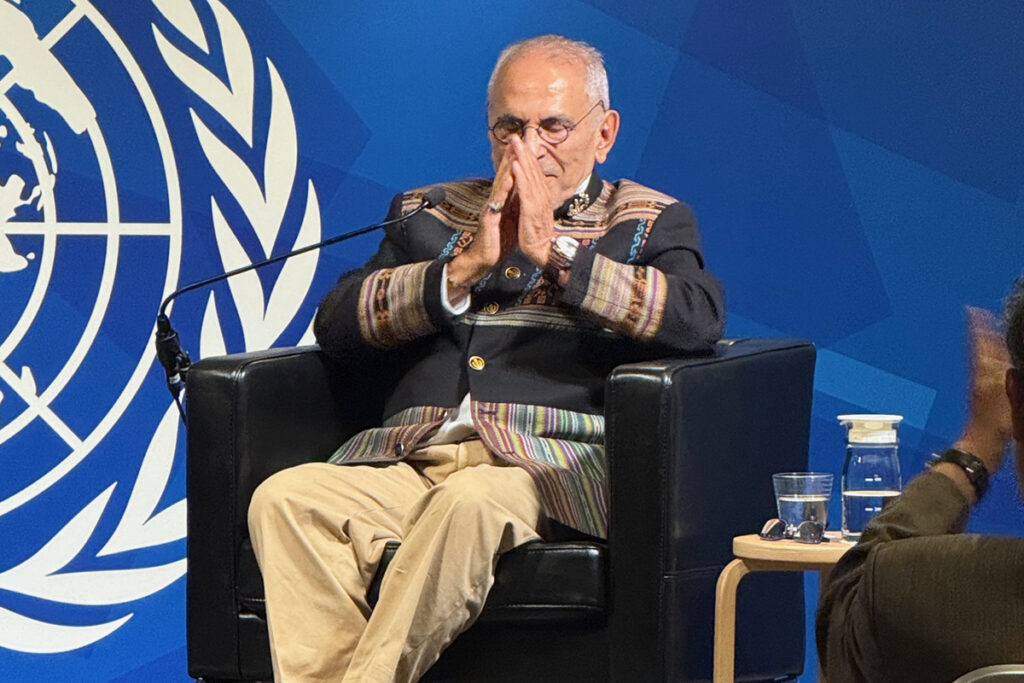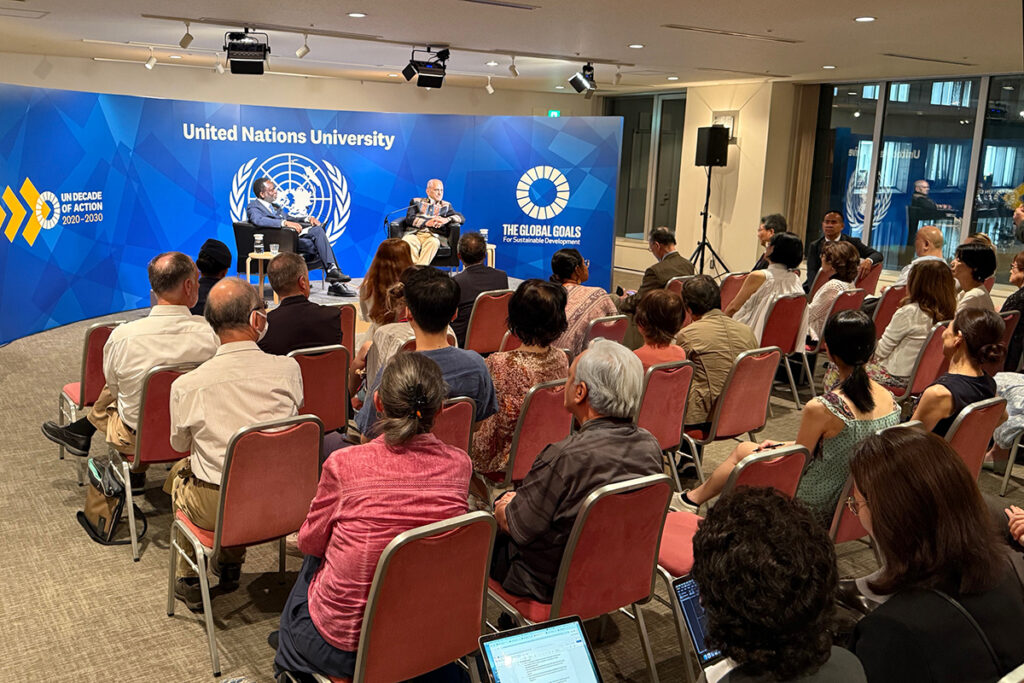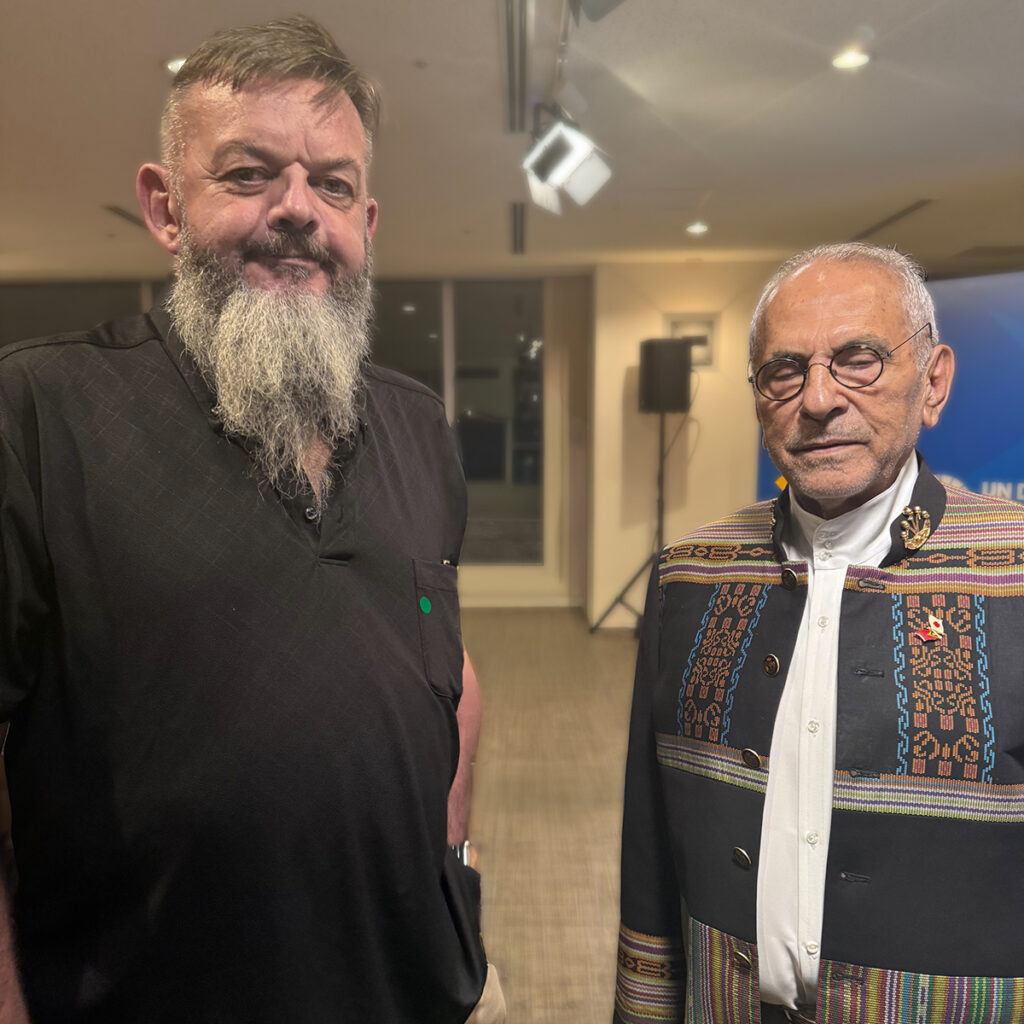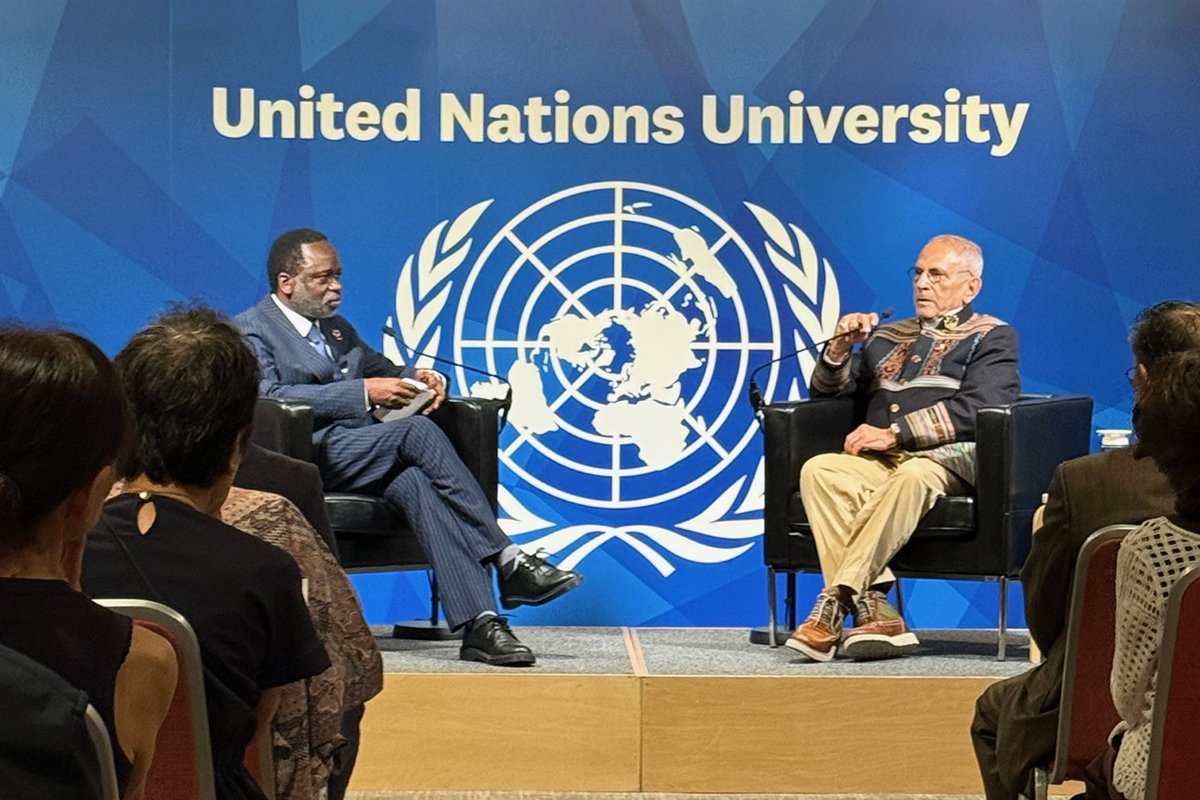Honour International Law and Save Multilateralism
As East Timor looks forward to joining the Association of Southeast Asian Nations (ASEAN) on October 26, President Dr. José Ramos-Horta offered some timely advice to global powers and fragile states alike during a week-long trip to Japan in late August.
In a conversation with United Nations University (UNU) Rector Professor Tshilidzi Marwala, Dr. Ramos-Horta said, “The world overall is now in a very dark place. Once violence starts, pride is wounded, hatred is created, the law of the jungle is normal and only powerful nations thrive.”
“Do not be consumed by anger, by hatred,” Dr. Ramos-Horta told the audience. “Be humble, dignified, proud also. Humility is strong and arrogance is weak.”
The UNU said in a statement: “Today, the international legal order faces mounting challenges: selective adherence, politicization of legal mechanisms and declining trust in multilateral institutions. As Timor-Leste prepares to become the 11th member of [ASEAN] and continues to lead among small island developing states and least developed countries, it is uniquely positioned to advocate for a rules-based international system.”
Officially called the Democratic Republic of Timor-Leste, the nation of 1.4 million citizens was colonized by Portugal from 1702 to 1975, before 24 years of Indonesian rule. After Dr. Ramos-Horta served as spokesman for the East Timorese resistance during 25 years in exile, he survived an attempted assassination, kidnapping and coup d’état in 2008 as president, and was jointly awarded the 1996 Nobel Peace Prize for decades of “work toward a just and peaceful solution to the conflict in East Timor.”

As a former journalist, perhaps he is better qualified than most to blame media for starting the 1994 genocide in Rwanda and specifically TV for anti-Islamic broadcasts that fueled the Balkans conflict in the same decade. More recently, “Many nations have used Facebook to instigate violence against ethnic groups and genocide. AI is even more dangerous, potentially. But it also has enormous advantages.”
How about East Timor? “We have one of the freest media in the world.” He added that East Timor also boasts “the best democracy in South East Asia,” adding jokingly, “which you might argue is not that difficult to achieve in the region.”
As the UN marks its 80th anniversary, the discussion soon turned to what role small and emerging states can play in upholding the international legal order. “By joining the best platforms,” Dr Ramos-Horta said. “Organizations such as ASEAN, the UN General Assembly and the [Organization of American States] can be very frustrating, but are ultimately and absolutely necessary, especially for fragile states.”
“Your voice has much more impact if you join regional and global bodies that focus on human rights, electoral oversight, social and economic development and security.”
However, he added, “The UN is heavily weighted towards Europe and not enough on Africa. When you consider the number of countries, people and potential on both continents, it is disproportionate and unfair.”
His wry sense of humour surfaced again when he recalled a conversation with former UN Secretary-General Ban Ki-moon. “I asked him how many people actually work at the UN, expecting him to give me the total number of staff, but he joked instead: ‘Oh, only about 10 percent of them.’”
As a member of the Global Leadership Foundation (GLF), Dr Ramos-Horta knows about bureaucracy, bloated payrolls and dictators. The non-profit, non-governmental network of former heads of state and other distinguished leaders “assist developing countries in improving governance, bolstering democratic institutions and resolving conflicts. Their main task is providing confidential advice to heads of government committed to peace, democracy and development and drafting treaties to submit to UN General Assembly members.”

Quoting another former UN Secretary-General, Dr. Ramos-Horta said in reply to a question about funding global climate change: “Kofi Annan is a wonderful human being who once said to me, ‘Don’t listen too much to pledges made at conferences.’” As an example, Dr Ramos-Horta pointed to the UN target first agreed in 1970 for developed countries to provide Official Development Assistance equal to 0.7% of their Gross National Income. While many countries aim to meet this target annually, very few do. “There is a serious lack of funds from the powers-that-be,” he said.
Why join ASEAN then? Dr Ramos-Horta said “The region would be a free-for-all without the mutually supporting three pillars provided by ASEAN.”
These pillars are:
- Political-Security Community
- Economic Community
- Socio-Cultural Community
In a world of changing global power dynamics, should technology be governed? How do we do that while preserving equality?
East Timor is one of 44 economies designated by the UN as the least developed countries, entitling them to preferential market access, aid, special technical assistance and capacity-building on technology among other concessions.
“It is hard to control technology once it starts,” Dr Ramos-Horta said. “One of my staff recently wrote me a speech so fast and so well. But he told me after that he had used AI! That was shocking for me! AI and other digital pioneers are protected by big powers and are unwilling to share their secrets. When the West woke up to Sputnik, [then-US President John F. Kennedy] quickly invested in the space race. He mobilized resources and rallied Americans, but the catch up was harder due to the Cold War.”
What do you mean by, “the world overall is now in a very dark place.”?
“The current situation in Gaza and Ukraine is profoundly abominable,” he said. “I am shocked at how it could happen today. But solutions can be found after tragedy strikes. The world needs a shock to make a better world. For the first time in a while, we do not have a single global power, which is good and bad. In 2008, I surprised some people by nominating the EU for a Nobel Peace Prize. The EU is an extraordinary institution, but it is now in disarray and morally shaken over Gaza. I told the Pope the situation in Gaza is hopeless, and he said ‘don’t give up, we must do our best.’”
And the future of North Asia? “Japan, China and Korea should get together and put behind them the 80 years of issues to build a region that benefits the rest of Asia. They should also reach out to India and Turkey to transform Asia with peace.” He said they need great leaders who practiced reconciliation and unity such as Willy Brandt and Francois Mitterand, former leaders of Germany and France, respectively.
East Timor President Dr. José Ramos-Horta served as Senior Minister and Minister for Foreign Affairs (2002–2006), Prime Minister (2006–2007), and President (2007–2012). He also acted as Special Representative to the UN Secretary-General from 2012 to 2014, and as the Chair of the UN High Level Independent Panel on Peace Operations between 2014 and 2016. He speaks five languages fluently: Tetum, Portuguese, English, French and Spanish.


